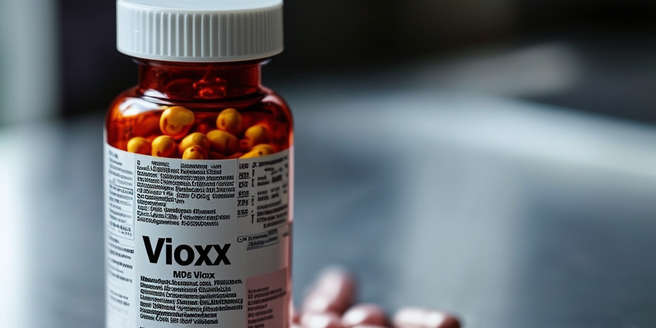
Understanding the Vioxx Mass Tort Case
The Vioxx Mass Tort Case, a significant legal dispute involving the notorious painkiller Vioxx, was one of the largest in history, affecting millions of patients worldwide. Researchers discovered that Vioxx had life-threatening side effects that were purposely concealed from the public, which resulted in harm to numerous unsuspecting patients who used the drug for their health concerns. This concealment sparked a mass tort case, a situation where multiple plaintiffs sue a single or group of defendants—usually corporations. Thousands of patients globally launched lawsuits against the marketers and producers of Vioxx. The Vioxx Mass Tort Case highlighted the trust placed in healthcare providers and pharmaceutical companies, and the severe repercussions when this trust is breached.
The Role of Merck & Co in the Vioxx Saga
Merck & Co, a global pharmaceutical giant, was at the center of controversy regarding its production of the drug Vioxx and the alleged downplaying of its potential risks. Critics claimed the company was suppressing the drug’s risk levels, presenting it as safe, which resulted in a severe public health crisis, impacting thousands of lives. This incident raises substantial ethics concerns within the pharmaceutical industry and emphasizes the urgent need for transparency and adherence to safety protocols. When such protocols are compromised for commercial gains, it leads to a breakdown in public trust and safety. This situation highlighted the need for regulatory oversight and the enforcement of strict safety guidelines, sparking a pressing discussion on pharmaceutical safety protocols.
Vioxx’s Impact on Patients: The Human Cost
Vioxx, the well-known drug, had a profound and significant impact on the health of scores of patients globally, many of whom developed severe health complications due to regular consumption. The health issues ranged from life-altering conditions such as heart attacks and strokes, which often led to long-term disabilities. Tragically, some users even lost their lives, inflicting irrevocable loss on many families. The human cost of the Vioxx saga, largely a result of corporate negligence, is a stark indicator of the harm that can be done without proper corporate responsibility. This incident underlines the need for transparency, responsibility, and caution in the medical and pharmaceutical sectors due to the wide-ranging effects a single error can inflict on global public health.
The Legal Framework of the Vioxx Mass Tort Case
The Vioxx Mass Tort Case, a landmark event in legal history, was marked by complex proceedings instigated by a torrent of lawsuits against Merck & Co. on account of alleged negligence, fraud, and breaches of duty. The case’s intricacies extended beyond immediate details, calling for a deep understanding of laws and ethical concerns, making it a tough playing field in mass tort litigation. Accusations against the company varied from customer duty negligence to fraud and ethical violation, suggesting systemic malfeasance. Today, owing to its complexity, the Vioxx case serves as an exemplary reference for other mass tort cases and has emerged as an essential resource for legal practitioners, thereby reshaping the legal landscape. The lessons derived continue to influence jurisprudence significantly.
Ethical Implications Arising from the Vioxx Case
The Vioxx case, a complex matter, highlighted the imperative responsibilities of pharmaceutical companies to ensure the safety of their products and thus consumers. It served as a stark reminder of the importance of accountability and ethical practice within the healthcare industry and incited debates in the field of bioethics. The case shed light on the need for transparency from the beginnings of drug creation to market release and prompt industry-wide introspection in healthcare practices. It also emphasized the role of the pharmaceutical industry in not only providing effective drugs but safeguarding patients’ safety. This case eventually led to a thorough re-evaluation and increased responsibility in healthcare and drug practices, aiming to preserve public trust.
Lessons Learned and Recommendations for the Future
The notable Vioxx case served as a significant wake-up call for the healthcare industry, underlining the necessity for stricter regulations in the industry and improved safety measures for patients. It emphasized the need for greater transparency in pharmaceutical companies, especially concerning drug information and clinical trials. Following the case, numerous recommendations for improved safeguarding procedures emerged, targeting areas such as enhanced due diligence in drug development, stricter monitoring during trials, thorough post-approval surveillance, and stronger accountability for companies. These recommendations aimed to prevent similar incidents in the future and fostered a transformation towards a patient-centric approach in healthcare.
